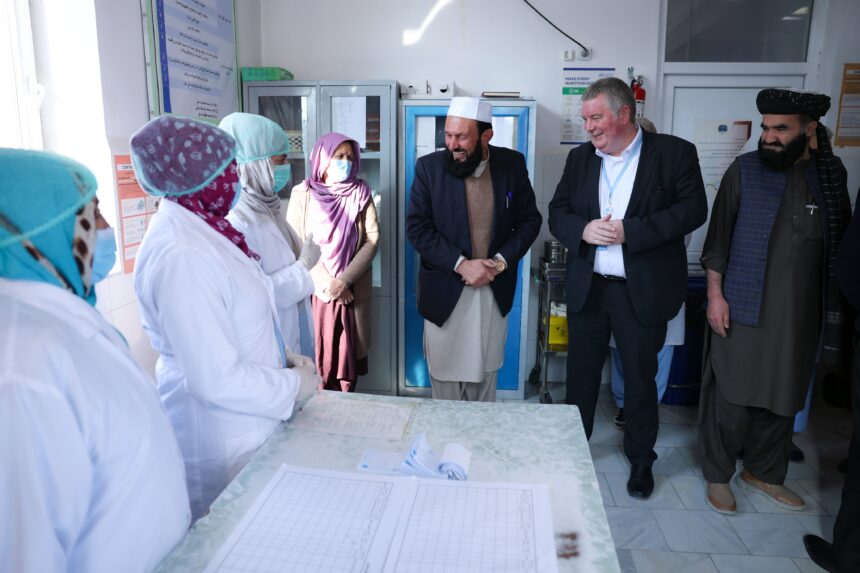NewzVille Desk
Dr Mike Ryan, Executive Director of WHO’s Health Emergencies Programme & Deputy DG, visited several health facilities in Kabul, Afghanistan. His visit highlighted the urgent health needs & ongoing efforts to support the Afghan people in their pursuit of better health & well-being.
After the visit Dr Ryan said It’s privilege to be back in Afghanistan, where people continue to face extraordinary challenges, supported by health workers all over the country. who are making a huge difference here.
WHO’S Executive Director visited Afghanistan’s National Infectious Disease Hospital. ED Dr Ryan appreciated the Hospital facility. He said It’s an incredible facility, I have seen the laboratories, the incentive care unit. I have seen many of the developments here that WHO is supporting. The humanitarian crisis here remains one of the most severe globally. 27.3 million people need urgent assistance and 17.9 million needing continuing support. This is a difficult time, but I have to say that the health system here in Afghanistan is working. Health workers are at their posts. The system needs support in order to be able to deal with the needs of the people here. 9.5 million people lack basic access to health services. Women and children facing disproportionate risks with 7.8 million people at risk of acute malnutrition. And 2.1 million million people in this country are without access to primary health care.
Counting WHO’s presence in Afghanistan, Dr Ryan said Despite these challenges WHO is taking action to support. We are supporting 109 primary health care centres and 13 hospitals. We are involved in vaccinating 17 million children. We are providing trauma, reproductive, mental health services to hundreds of thousands of Afghans. We are supporting 12 drug addiction treatment centres, with 690 beds and 17 mobile outreach teams and 6 opiod substitution therapy clinics.
WHO is operating 4 impatient residential women and children drug addiction treatment centres. with 190 beds and 6 mobile outreach centres. There are many activities in Afghanistan, launching female opiod substitution treatment clinics in Kabul and Mazar.
Dr Ryan stressed the need for qualified men and women health workers in the region. He urged all to remain united to sustain and strengthen to provide health service for the amazing people of Afghanistan.
At last he said, “There are a lot of health needs here that are complex, but the dedication & commitment of the health workers is inspiring.”






